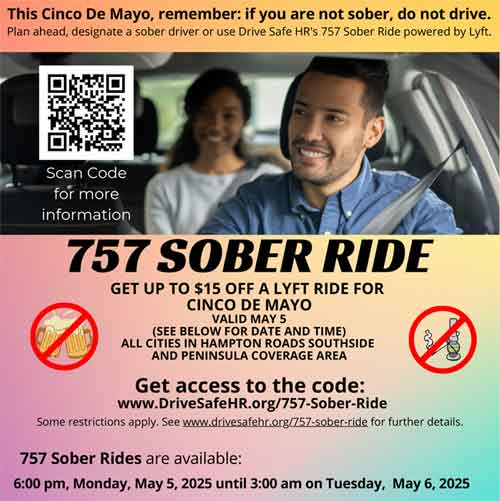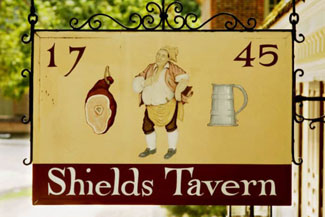Conceive the Impossible: Real Christmas Hope in the Midst of Real Life
A friend down in North Carolina grew up the oldest of three boys. Like most kids, they all looked forward to Christmas morning in eager expectation to discover what Santa had brought them. And of course they always hoped that they were on the “nice” list, not the “naughty” one. Some years they were more anxious than others that, rather than presents under the tree, they would find a stocking full of switches and ashes or lumps of coal. One particular Christmas, the three boys woke up much earlier than usual and rushed downstairs. To their horror, there was nothing under their Christmas tree. (Let’s just say that Santa had overslept!) You can imagine the sick feeling those little boys had in their hearts early that morning.
Nothing. Nothing at all. What’s it like when there’s nothing under the Christmas tree? What’s it like when the Christmas tree is barren?
Of the many people who play a part in the Christmas Story that we find in the Bible, Mary’s cousin Elizabeth knows what it’s like when there’s nothing under the Christmas tree, when the tree is barren. We find her story in the first chapter of Luke’s Gospel. (You might consider reading vv. 5-45 to refresh your memory.)
What do we know about Elizabeth? Well, she’s married to Zechariah. She’s from the priestly lineage of Aaron (Israel’s first high priest). Elizabeth is a godly woman, and her husband is a godly man. She is also childless and beyond child-bearing years.
In fact, it’s interesting to note that the most emphasized characteristic of Elizabeth is that she is “barren” – infertile, unable to conceive children. In the span of just a handful of verses, there are eight references to Elizabeth’s barrenness.
In the First Century, the inability to bear children had profound economic and social implications. Economically, parents relied on children for financial support when they got old. Socially, childlessness was seen as a disgrace. In that day, fertility was typically attributed to divine blessing, while infertility was considered a sign of divine disapproval. Though Luke makes clear that her barrenness was not due to divine disfavor, Elizabeth refers to her barrenness as “my disgrace among the people” (v. 25).
And of course there’s the heartache. The personal disappointment of not being able to have a child. My wife Heather and I understand this particular heartache. We were married nearly 11 years before our first child was born. For us, there were several years of wondering and waiting. A long, painful season of barrenness marked by disappointment month after month, year after year.
But while for us it was years, for Elizabeth and Zechariah it was decades. Decades of personal heartache. Decades of economic uncertainty. Decades of social awkwardness.
What about you? Truth be told, we all experience barrenness of some kind. What are the difficult, disappointing, discouraging places for you? What are the places of loss, the barren places causing you pain and suffering? In other words…
What presents aren’t under your Christmas tree?
Barrenness is real.
Barrenness is painful.
But barrenness is not the end of the Story!
In the midst of the very real places of pain and suffering in our lives, we are confronted with the question: “Will I trust God?”
Elizabeth is confronted with that question. And despite her pain and suffering, she is able to trust Him. Why? Because she knows that barrenness is not the end of the Story (even before she knows that she will conceive and give birth to a son).
Elizabeth knows that the Suffering Servant (God’s Savior) of Isaiah 53 will Himself ultimately bring us everlasting peace and healing. And that He will do so “by His wounds.” She knows that the Suffering Servant will take our sin and brokenness upon Himself. She knows that He will embrace a barrenness far greater than any we could ever imagine so that by faith in Him we won’t have to be barren forever. Elizabeth knows that the Suffering Servant will usher in salvation for all who believe!
And as Luke’s account unfolds, we learn that both Elizabeth and her teenage cousin Mary have conceived according to God’s promise. Both have conceived the impossible. When Mary pays Elizabeth a visit (see vv. 39-45), Elizabeth exclaims: “Blessed are you among women, and blessed is the child you will bear… Blessed is she who has believed that the Lord would fulfill His promises to her!” And Elizabeth learns that the name of Mary’s child, the Savior, is Jesus.
In the final book of The Lord of the Rings trilogy, The Return of the King, the people are awaiting the King’s return, the King who will “make all things right”… But before His return, there’s a long season of wondering and waiting… of barrenness. During this time, the hobbits Sam and Frodo are on a seemingly impossible mission, and they’re losing hope.
While taking a break on their long, dark journey, Frodo is napping, and this is the narrator’s commentary on Sam: “There, peeping among the cloud-wrack, above a dark tower, high up in the mountains, Sam saw a white star twinkle for a while. The beauty of it smote his heart, as he looked up out of the [barren] forsaken land, and hope returned to him. For like a shaft, clear and cold, the thought pierced him that in the end the Shadow was only a small and passing thing; there was light and high beauty forever beyond its reach.”
This Christmas, what will you fix your eyes on? The presents under the Christmas tree? The presents that aren’t there? Rather than looking under the tree, look to the star at the top of it, the star that once stood over the manger and now still points us to Him… the One who is coming back to make all things right.
This Advent Season, let’s not only celebrate the first coming of Christ, but let’s also anticipate His return, His second Advent, when He will renew all things… when all sad things will come untrue.
That’s real Christmas hope in the midst of real life.
Rev. Camper Mundy and his wife Heather moved to Williamsburg in September 2007 to join the ministry and mission of Grace Covenant Presbyterian Church. Previously, they spent six years in Vancouver, Canada where Camper served as a pastor at Grace Vancouver Church (PCA) after receiving his M.Div. from Regent College in Vancouver. Before that, they were in Chapel Hill, NC for six years where Camper served as a campus minister with InterVarsity Christian Fellowship. Camper and Heather were married in 1996 and have three children. They met as undergrads at Wake Forest University.
Grace Covenant Presbyterian Church
1677 Jamestown Road
Williamsburg, VA 23185
(757) 220-0147
www.gracecovpca.org
Christmas Eve:
Candlelight Service, 5:00 pm
(Childcare provided)
Sunday Mornings:
Worship Services, 8:30 & 11:00
Education Hour, 10:00







































